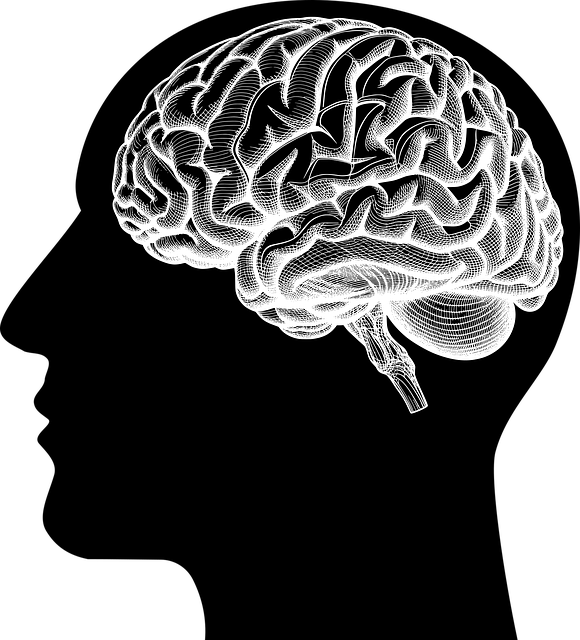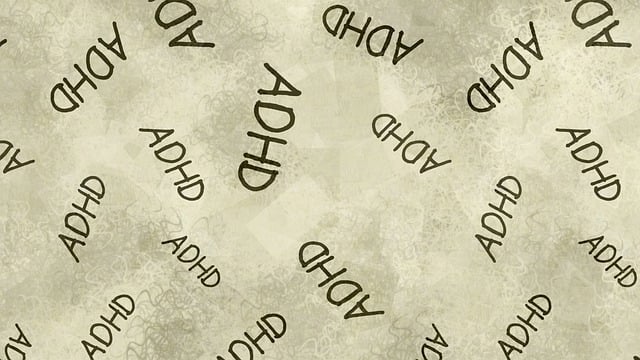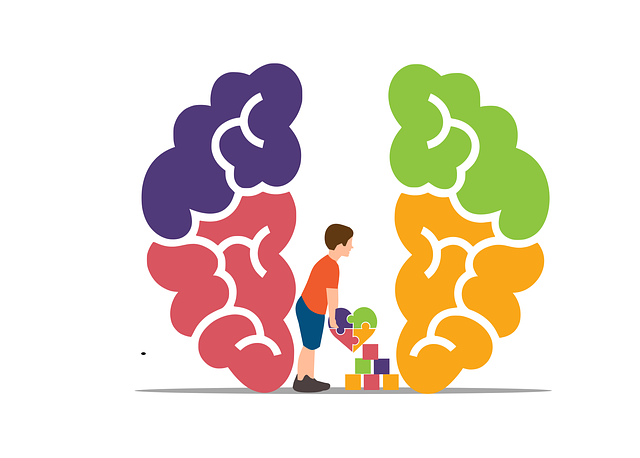Crisis Intervention Teams (CITs) offer vital support during acute mental health crises, especially for young children with OCD, through collaborative therapy and comprehensive training. Integrating CITs into healthcare systems, as advocated by Mental Health Policy Analysis and Advocacy, ensures better access to timely crisis support. Effective risk management planning is crucial for enhancing safety and effectiveness in child mental health care. Early intervention using specialized programs like CBT targets root causes of OCD, while CIT training equips professionals with tools to manage risks and prevent burnout. Comprehensive CIT training focuses on inner strength development, mindfulness, empathy building, and emotional intelligence to create supportive environments for both children and families. Preparing caregivers and educators is essential for successful crisis intervention strategies in treating young children with OCD. Case studies demonstrate the value of well-structured, evidence-based CIT programs in improving mental wellness outcomes.
Crisis intervention team (CIT) training is a vital component in addressing mental health crises, especially among young children. This article explores CIT programs designed to support kids struggling with issues like Obsessive-Compulsive Disorder (OCD), emphasizing the critical role of early intervention. We delve into the structure and impact of such teams, offering insights on preparing caregivers and educators to handle these situations effectively. Through real-world case studies, we highlight successful crisis intervention strategies, showcasing how CIT training can revolutionize therapy for young children with OCD.
- Understanding Crisis Intervention Teams and Their Role in Child Mental Health
- The Impact of Early Intervention on Children with OCD
- Essential Components of Effective Crisis Team Training Programs
- Preparing Caregivers and Educators: Strategies for Success
- Case Studies: Real-World Examples of Crisis Intervention in Action
Understanding Crisis Intervention Teams and Their Role in Child Mental Health

Crisis Intervention Teams (CITs) play a vital role in addressing acute mental health crises, particularly among young children. These specialized teams are designed to provide immediate and effective support when faced with situations involving emotional distress, behavioral disorders, or even thoughts of self-harm. In the context of child mental health, CITs offer a collaborative approach to therapy for young children experiencing conditions like Obsessive Compulsive Disorder (OCD), where swift intervention can prevent escalation and promote positive outcomes.
The Crisis Intervention Guidance for mental health professionals emphasizes the importance of CITs in de-escalating high-risk situations. Through comprehensive training, these teams gain the necessary skills to assess, manage, and provide short-term interventions while also coordinating long-term care plans. Mental Health Policy Analysis and Advocacy supports the integration of CITs into existing healthcare systems, ensuring better access to timely crisis support for vulnerable children. Additionally, Risk Management Planning for mental health professionals within CITs is crucial to mitigating potential risks during high-pressure situations, thereby enhancing overall safety and effectiveness in child mental health care.
The Impact of Early Intervention on Children with OCD

Early intervention is crucial when it comes to supporting young children with Obsessive-Compulsive Disorder (OCD). This timeline-sensitive approach can significantly impact a child’s overall well-being and long-term mental health outcomes. By implementing specialized therapy programs tailored for young minds, such as cognitive-behavioral therapy (CBT), professionals can effectively target the root causes of OCD. CBT helps children learn coping mechanisms to manage intrusive thoughts and engage in behaviors that contradict their obsessions, thus breaking the cycle of OCD.
Incorporating crisis intervention team training into the equation further enhances support for these vulnerable individuals. Mental health professionals undergo comprehensive risk assessment to identify potential hazards and develop strategies for burnout prevention. This proactive approach ensures a robust framework where mood management techniques are integral to supporting both children and their families, fostering a healthier and more resilient environment.
Essential Components of Effective Crisis Team Training Programs

Effective crisis intervention team training programs are multifaceted and tailored to address a range of issues, including therapy for young children with obsessive-compulsive disorder (OCD). A comprehensive program should incorporate several essential components. Firstly, inner strength development is crucial; equipping team members with tools to manage their own stress and emotions enables them to better support others in crisis. This involves teaching mindfulness techniques, resilience-building strategies, and self-care practices.
Additionally, empathy building strategies are vital for fostering strong connections and understanding within the team and when interacting with individuals in distress. Training should emphasize active listening, cultural sensitivity, and the ability to convey empathy effectively. Equally important is focusing on emotional intelligence, helping team members recognize and manage their own emotions as well as understand the emotional states of others. This fosters a supportive environment where everyone feels heard, respected, and valued.
Preparing Caregivers and Educators: Strategies for Success

Preparing caregivers and educators is a cornerstone of effective crisis intervention strategies, especially when addressing issues like obsessive-compulsive disorder (OCD) in young children. Crisis intervention guidance should incorporate self-awareness exercises to help them recognize early signs of distress and understand their role in providing immediate support. By fostering positive thinking among both caregivers and educators, the program can enhance their ability to create a calm environment, which is crucial for therapy sessions focused on OCD.
These strategies aim to equip participants with practical tools to manage intense situations effectively. Incorporating evidence-based techniques, such as mindfulness practices, into the training curriculum can further strengthen their crisis response capabilities. Ultimately, successful preparation ensures that those closest to the child are equipped to offer consistent support, facilitating a smoother transition into therapeutic interventions for young children struggling with OCD.
Case Studies: Real-World Examples of Crisis Intervention in Action

Crisis intervention team training programs often showcase their effectiveness through compelling case studies, providing real-world examples of how these strategies can make a tangible difference. One such example involves young children suffering from obsessive-compulsive disorder (OCD). Through targeted therapy sessions, crisis intervention techniques have helped these kids navigate their mental health challenges. Therapists utilize mind over matter principles, encouraging children to confront and overcome their obsessions and compulsions in a safe and supportive environment.
These case studies highlight the power of well-structured programs that prioritize mental wellness. By integrating evidence-based practices into crisis intervention training, professionals can better equip themselves to support individuals facing various mental health crises, from anxiety and depression to more severe conditions. This approach not only enhances the effectiveness of interventions but also contributes to the ongoing development of valuable mental wellness podcast series production resources for both experts and those seeking guidance.
Crisis intervention team training programs are instrumental in equipping caregivers and educators with the skills needed to support young children suffering from mental health crises, particularly those diagnosed with Obsessive Compulsive Disorder (OCD). By understanding the impact of early intervention and implementing effective training strategies, we can create a more responsive and supportive environment for these vulnerable kids. Through real-world case studies, it’s evident that well-prepared crisis teams can make a significant difference in preventing and managing OCD symptoms, ultimately enhancing the overall well-being of young individuals in our care.














